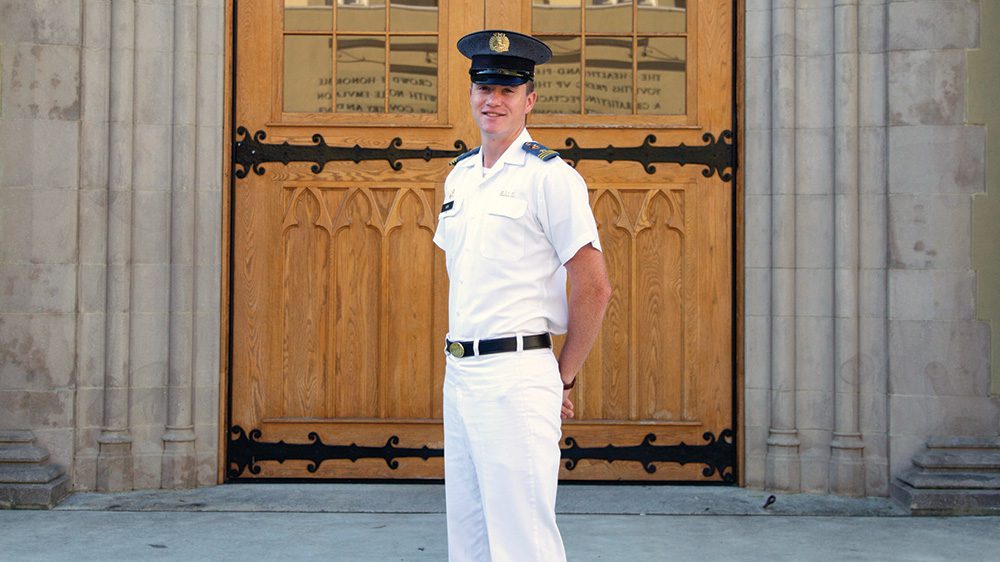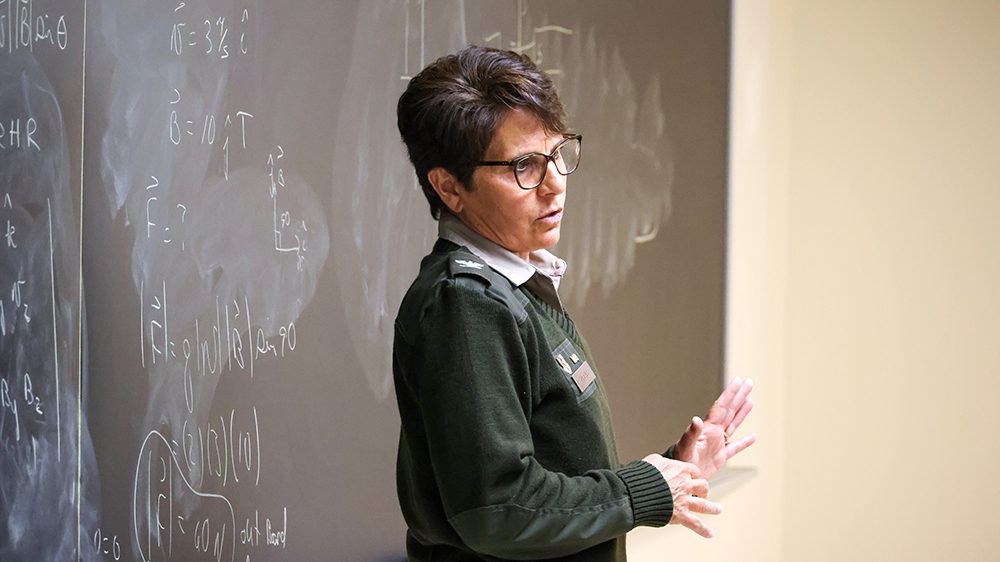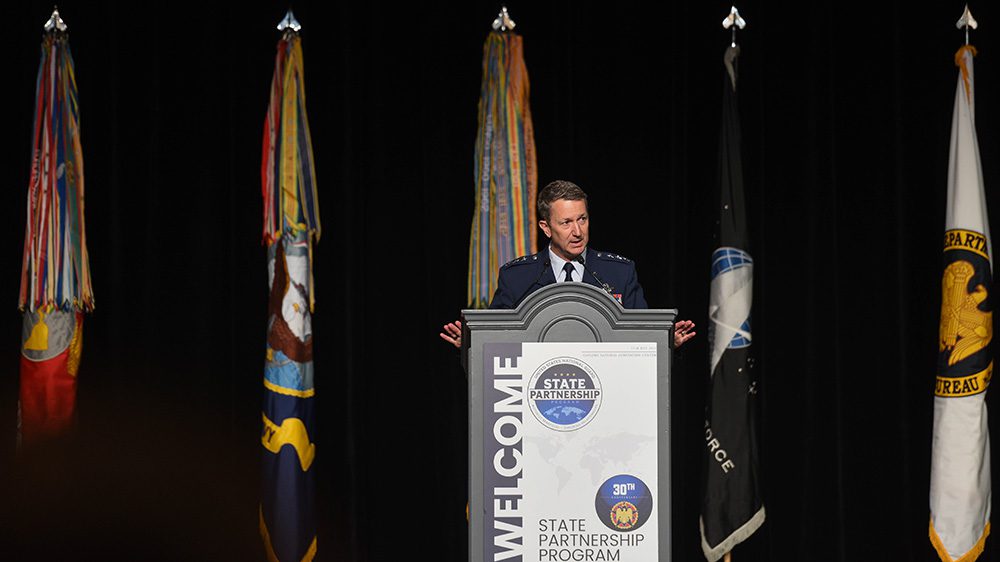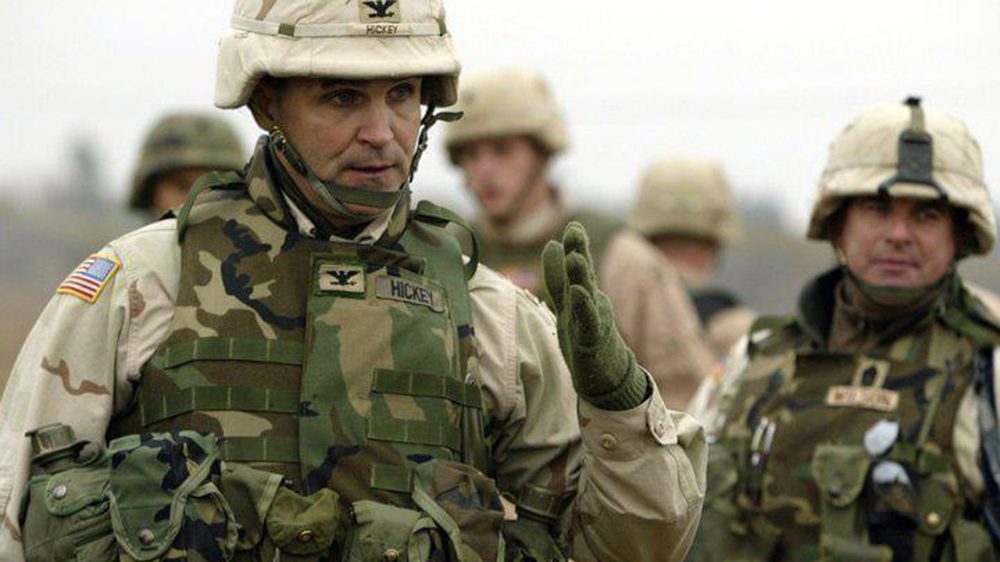VMI’s prestige encompasses academics, too. Kirk is a double major in physics and math. He came to VMI with a four-year Navy scholarship and wants to work on nuclear submarines. To achieve that goal, he checked out mechanical engineering, physics, and math majors. Physics appealed to him, particularly the observatory at McKethan Park. Later, he added his second major, math. Many of the courses overlap, and he said he isn’t adding much to his semesterly 18-and-a-half credit hour load.
“I love the physics and math departments,” Kirk said. “I’ve gotten the same level of academic mentorship that you would see in any other college. I don’t think the fact that VMI is a very structured and very military environment has changed the academics at all. I feel very strongly that we do have some of the best programs in the country.”
National rankings reflect his feelings about VMI’s academic strength, Kirk pointed out. VMI has consistently taken high spots in academics, overall college rankings, and other areas, like service, earnings after graduation, and quality of life after graduation.
For his capstone, Kirk is working in the observatory. “I feel very fortunate to do that. I’m going to be studying the polarization, magnetic field, and interstellar extinction of a star cluster,” he said.
Kirk will be looking at a group of several thousand stars, or an open cluster, named NGC 6633. The cluster is about 1,300 light-years away and has never been studied with the method Kirk is using, called polarimetry, explained Col. Greg Topasna, Ph.D., Kirk’s advisor and a professor in the Department of Astronomy and Physics. About half the data for the project is on hand, and Kirk will gather the other half by working with Topasna in the VMI observatory.
“It will involve a lot of computer time: Obtaining the images, measuring the starlight, researching the cluster and individual stars, and, of course, writing,” Topasna said. The VMI researchers are working with a professor at the University of Wisconsin at Oshkosh, who will also provide part of the data.
When Kirk matriculated, his brother was a 1st Class cadet—and a company commander. People knew Nathan ’19—and therefore knew his little brother. “People definitely held me to a standard because of that,” Kirk remembered. His brother was his uncle dyke—meaning Kirk’s dyke was one of his brother’s roommates. Inside the dykes’ room, the rats were treated the same by all the dykes. And outside the room, to his brother, “I was just another rat,” Kirk said.
This year, he’s got a busy schedule—double major, ROTC responsibilities, and serving as the 1st Class president. How does he balance it all? Some things he learned from his dyke. His dyke was also a double major and a company commander. He “stressed the importance of having a plan … managing my time, staying up to date on due dates and presentations,” Kirk remembered.
“I think it’s really important to remember that VMI is a school first. Everybody who comes here comes for a degree,” Kirk said. “I take my academics very seriously.” Through his years at VMI, he says he “appreciated the regimented lifestyle and structure. It gives you a good opportunity to learn how to schedule your time well and prepares you better for when you leave college and are busy in the real world.”





